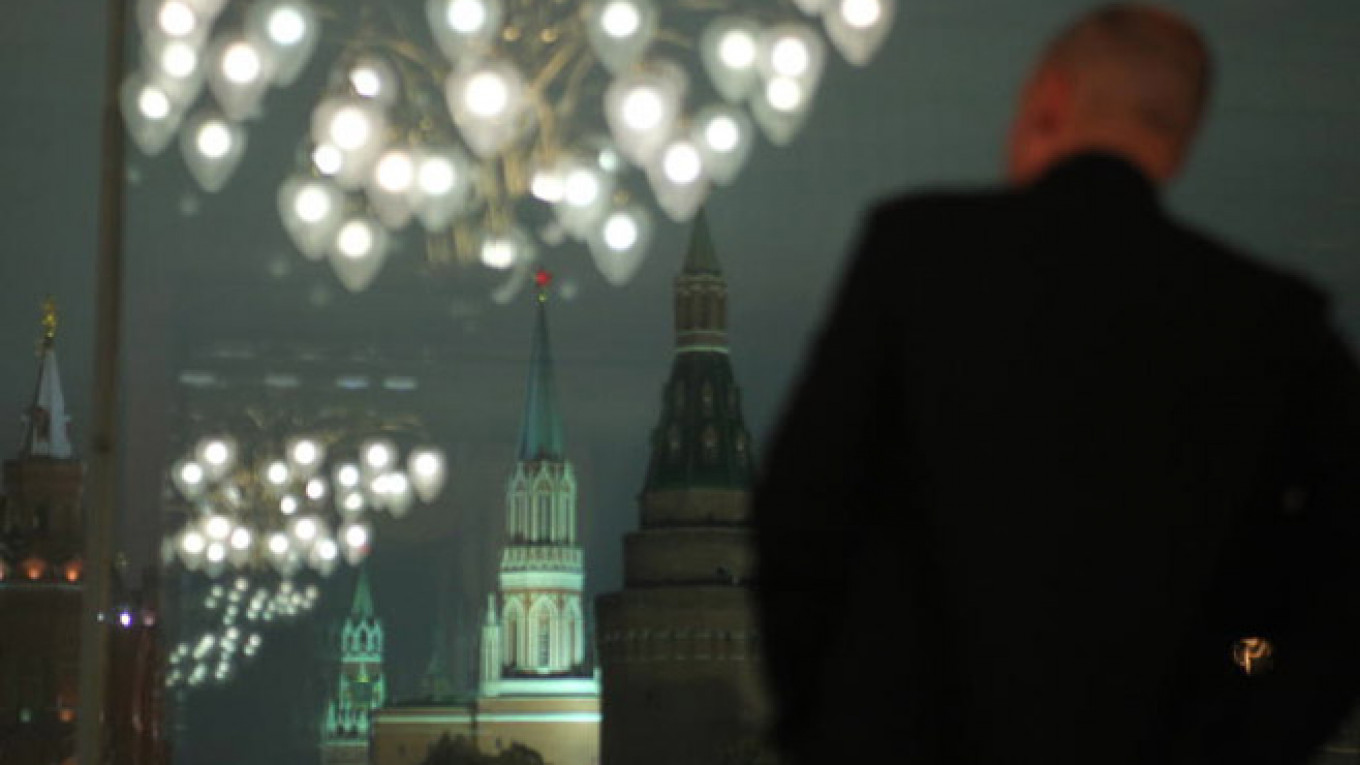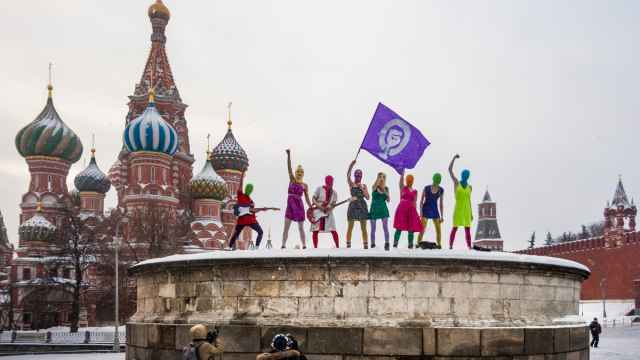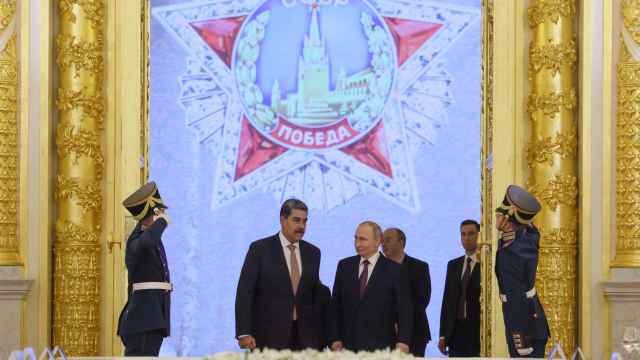A distinct note of hopelessness crept into official government statements regarding the economy in February. The problems the country is facing are obvious, but what are lacking are new proposals for solving them and new people ready to take responsibility for what is happening in the economy.
That hopelessness has bred passivity: with economic problems so daunting and so complex, what is the point of even trying? How is it possible to quickly correct the deeply entrenched economic imbalances in a range of sectors or root out the pervasive corruption?
Of course, there are no quick fixes to such problems, but that does not mean the authorities should not take some steps right now. Many measures could be implemented quickly. First, leaders could immediately lift the ban on imported foods from Europe and the United States. Second, they could announce a substantial reduction in military spending. Third, they could fire the most flagrantly corrupt officials from the government and administration.
But even these measures will not solve any long-term problems. Serious change never occurs without a change in leadership — the president, the government and parliament. No, I am not advocating early elections or, God forbid, revolution, but recognizing the fact that only in theory, but not in practice can "structural reforms" take place without renewing the country's political leadership.
The "anti-sanctions" introduced in August have already caused significant damage to the Russian economy. Inflation in the food sector was about 20 percent over the past six months, twice as high as overall inflation. That hit the poorest half of the population hardest, with food representing the greater and most important part of the budget for those families.
What happens when a family is forced to spend more on food? Not only do they eat less, but they have less money left over to buy other products as well. That lowers consumer demand for everything, including domestically produced items.
Of course, a repeal of the anti-sanctions would not help overcome the current economic crisis, but it would improve the quality of life for Russians and, more importantly, it would send a signal that leaders are not indifferent to what is happening in the economy.
It would also send the right signal if the government were to cut military spending by the same 10 percent it has already cut spending in other areas of the budget. Russia does not face either a direct or indirect military threat, but it does face the threat of long-term economic stagnation — arguably a greater danger than anything connected with "geopolitics."
This is the wrong time to forget that the Soviet Union collapsed because of economic problems that stemmed in part from the unbearably high cost of defending the country against imaginary enemies.
And finally, nobody doubts that corruption is an inescapable part of life for a developing economy. However, the level of corruption in Russia's government and administration is simply off the charts.
Even if a court could not admit as official evidence the revelations that opposition leader Alexei Navalny has posted on his blog, exposing misdoings by senior officials and the heads of major state-owned companies — as well as photos of those executives' lavish personal estates — such proof is more than enough to justify firing those officials for "loss of confidence."
And that would send another positive signal that the leadership is serious about turning this economy around.
Konstantin Sonin, a columnist for Vedomosti, is professor of economics at the Higher School of Economics in Moscow.
A Message from The Moscow Times:
Dear readers,
We are facing unprecedented challenges. Russia's Prosecutor General's Office has designated The Moscow Times as an "undesirable" organization, criminalizing our work and putting our staff at risk of prosecution. This follows our earlier unjust labeling as a "foreign agent."
These actions are direct attempts to silence independent journalism in Russia. The authorities claim our work "discredits the decisions of the Russian leadership." We see things differently: we strive to provide accurate, unbiased reporting on Russia.
We, the journalists of The Moscow Times, refuse to be silenced. But to continue our work, we need your help.
Your support, no matter how small, makes a world of difference. If you can, please support us monthly starting from just $2. It's quick to set up, and every contribution makes a significant impact.
By supporting The Moscow Times, you're defending open, independent journalism in the face of repression. Thank you for standing with us.
Remind me later.






